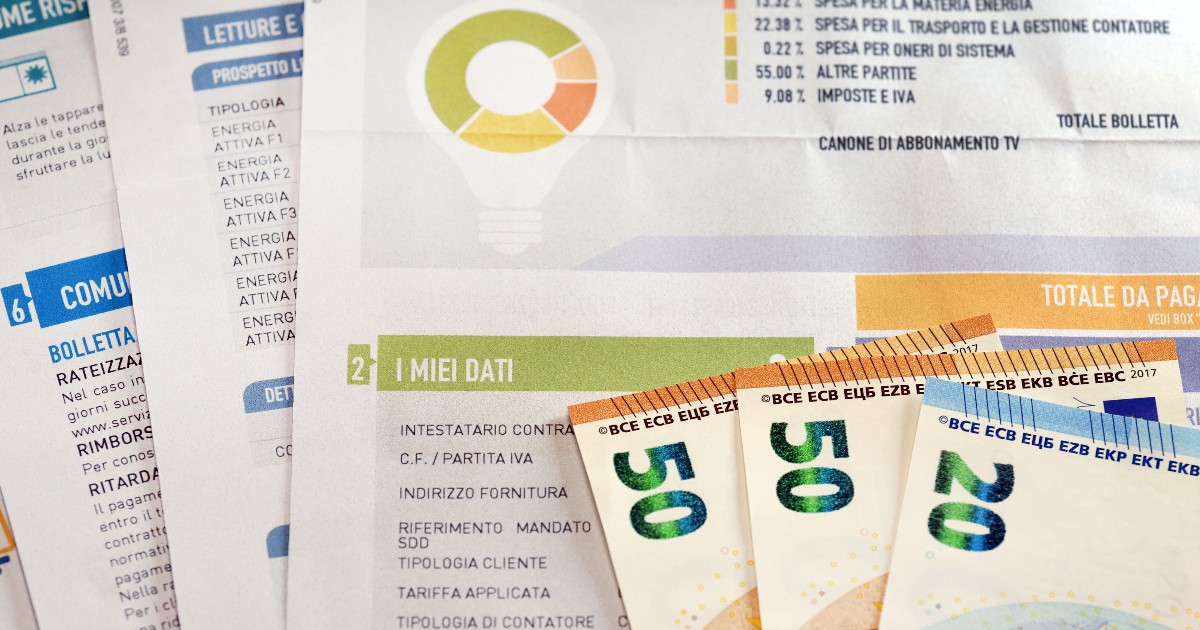A new chapter opens in the rebus on unilateral, upward, variations of the electricity and gas rates proposed by the companies to their own users despite the prohibition envisaged by the aid decree bis. If on the one hand give it latest measures ofAntitrust which impose the suspension of these variations on seven companies, an extensive interpretation of the block emerges in favor of consumerson the other you risk an effect boomerangs. With infinite interpretative keys and with the start of a series of contentious And appeals to the TAR, throwing consumers into an even more chaotic situation. The questions and doubts are endless, because really the rule of the dl aid bis has never been detailed, she’s born ambiguous. And subsequently there has never been a legislative clarification, despite the immense scope of the match which therefore risks being managed with sentences. Moreover, the freeze on tariffs is valid until April 30, 2023. What happens after this date? Without further action, it’s easy to fear that companies will try to to retrieve what they have lost. So consumers, whether they are families, entire condominiums or micro-enterprises, find themselves in a limbo in which it is difficult to make forward-looking choices.
What happens to those who have already changed supplier – What happens for example if, after the letter with the proposed change, the user has changed supplier but now, since the proposed increase has been declared illegitimate, do you want to go back to the previous one? The Antitrust maintains that the manager who made the customer flee by proposing rate increases must write to him to communicate that he can return to the old conditions. The company will have to announce “individually and in the same form to consumers who have exercised the right of withdrawal (…), the possibility of returning to the supply at the previous economic conditions”, says the Antitrust. At that point the user can opt for the return. Problem: the change of operator should involve charges only for stamp duty and for any security deposits. However, contracts with special conditions are often stipulated – for example fixed prices for a certain period – in which they can be entered clauses which require you to pay a contribution in case of early cancellation. Generally, then, for the change it takes from one to two months.
The case of those who stayed with the old supplier (with increased rates) – Even the customer who has not changed supplier must wait for the letter from the supplier communicating the blocking of the increase. However in both cases, as he points out Fabrizio Ghidinihead of the Energy Department Federconsumatoria ilfattoquotidiano.itthe risk is that the companies, while undertaking at the moment not to apply the increase anymore, do not send the letters because they have appealed to the Tar or are preparing to do so. So a family can find themselves making a choice, without a communication that reassures them of the blocking of the tariff and without knowing what will happen after April 30 or after the various sentences of the Tar or the Council of State. One solution could be to go back to the market protected which has been extended, however – underlines Ghidini – “the procedure would not be absolutely fluid given that the goal so far has been to move towards the free market”.
Another question mark: will those who have suffered the illegal increase be reimbursed? According to Other consumptioncontacted by ilfattoquotidiano.it, “Consumers who have paid more for these illicit increases have the right to claim reimbursement from the operator with a complaint and if it doesn’t go through with an attempt at conciliation in Arera”. On the basis of the data provided by the companies themselves, it appears that consumers, condominiums and micro-enterprises affected by communications of changes in economic conditions are 7,546,963, of which approximately 2,667,127 would have already suffered an unjustified increase of price.
Doubts on the interpretation of the Antitrust – But the most controversial issue on which the companies announce a tough legal battle is the legitimacy of the ban on tariff changes also for contracts that have expiredsupported by the Antitrust. According to the suppliers, this is a too broad vision that goes beyond the intentions of the legislator. Doubts on this point in particular also come from some consumer associations. “A seller who has bought energy at a certain higher price can be asked to sell it below cost if it has contractual obligations at fixed rates, but such a request is absolutely unmotivated in the presence of contractual expiries that have occurred without the obligation of automatic renewal”, he points out Absolute usersasking for an “extremely urgent meeting” with the Antitrust and ad It’s feeding so that “every misunderstanding about the existence of alleged unilateral changes affecting 80% of users of electricity and gas companies”. According to Assoutenti “the intervention must be done at the source and addressed to the energy producers and not to the sellers”.
Company appeals – Meanwhile, the hearing on the merits of the TAR sui has been set for 22 February appeals of Irene and you Dolomites. Also Is in the announced an appeal to the Tar and from the statements of the other companies it is easy to predict that others will follow. “The Authority – notes Enel – requests that the article in question also be applied to contract renewals, thus proposing an analogical interpretation wrong of an exceptional provision, in contrast with national rules and European regulations”. For his part Was has already declared that it “has always operated in compliance with current regulations (…), proposing renewals of the economic conditions only if they are due to expire”. So the company announces that it “reserves the right to protect its reasons in the competent offices”. Edison also believes that “the regulatory interpretation of article 3 of the Aid bis decree given by the Authority is completely illegitimate, reserving the right to defend its reasons in the competent offices” and “underlines that it has never made unilateral changes during the of the contracts, limiting itself, in compliance with the contractual commitments, to the renewal of the economic conditions at the natural contractual expiry”.
On the other hand, there are consumer associations which instead point to an even tougher line. As the Codacons which presented a new complaint to 104 public prosecutors throughout Italy, to ascertain whether the practices adopted could configure any criminally relevant cases, from fraud to embezzlement, up to the interruption of public service.


